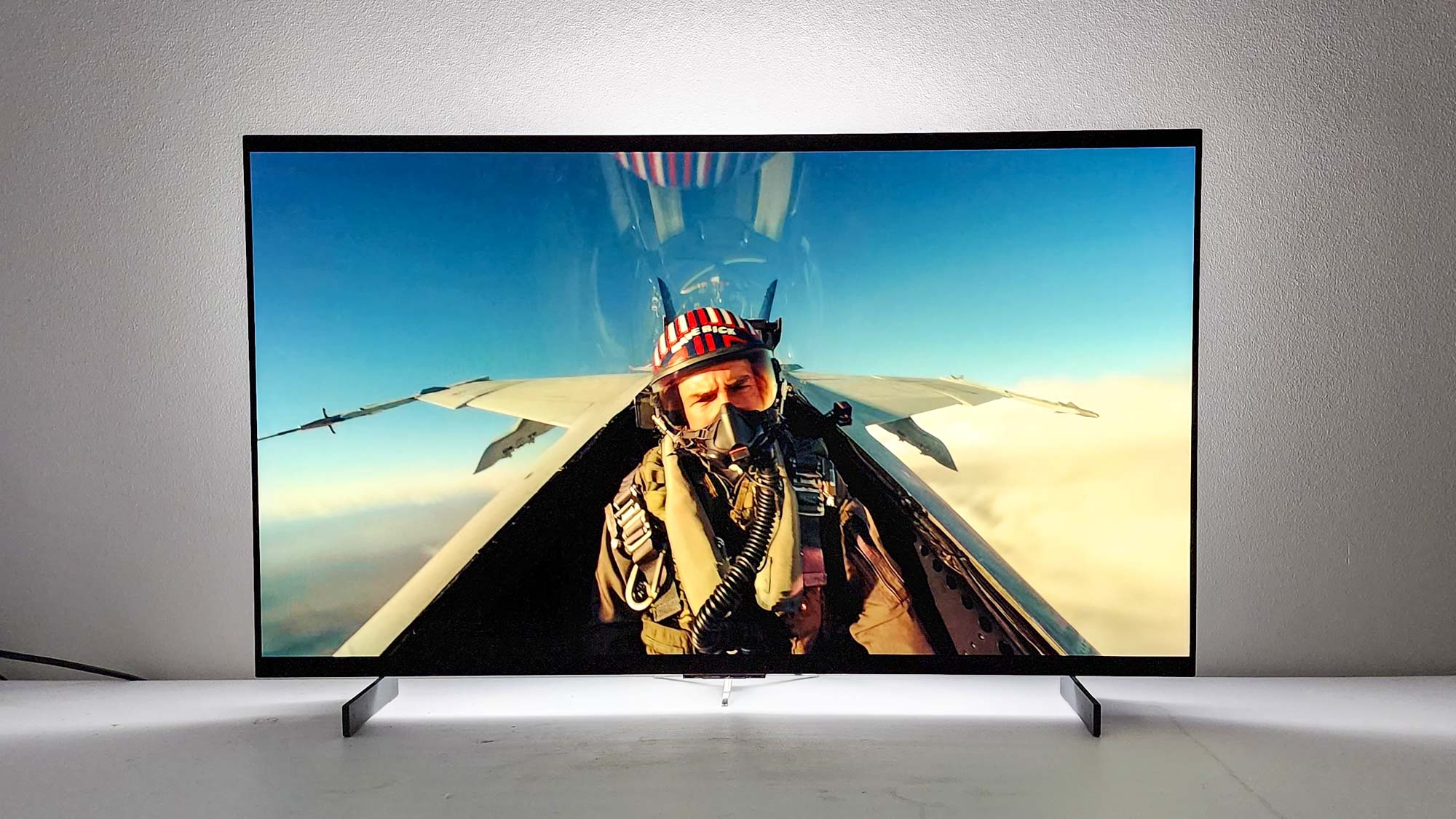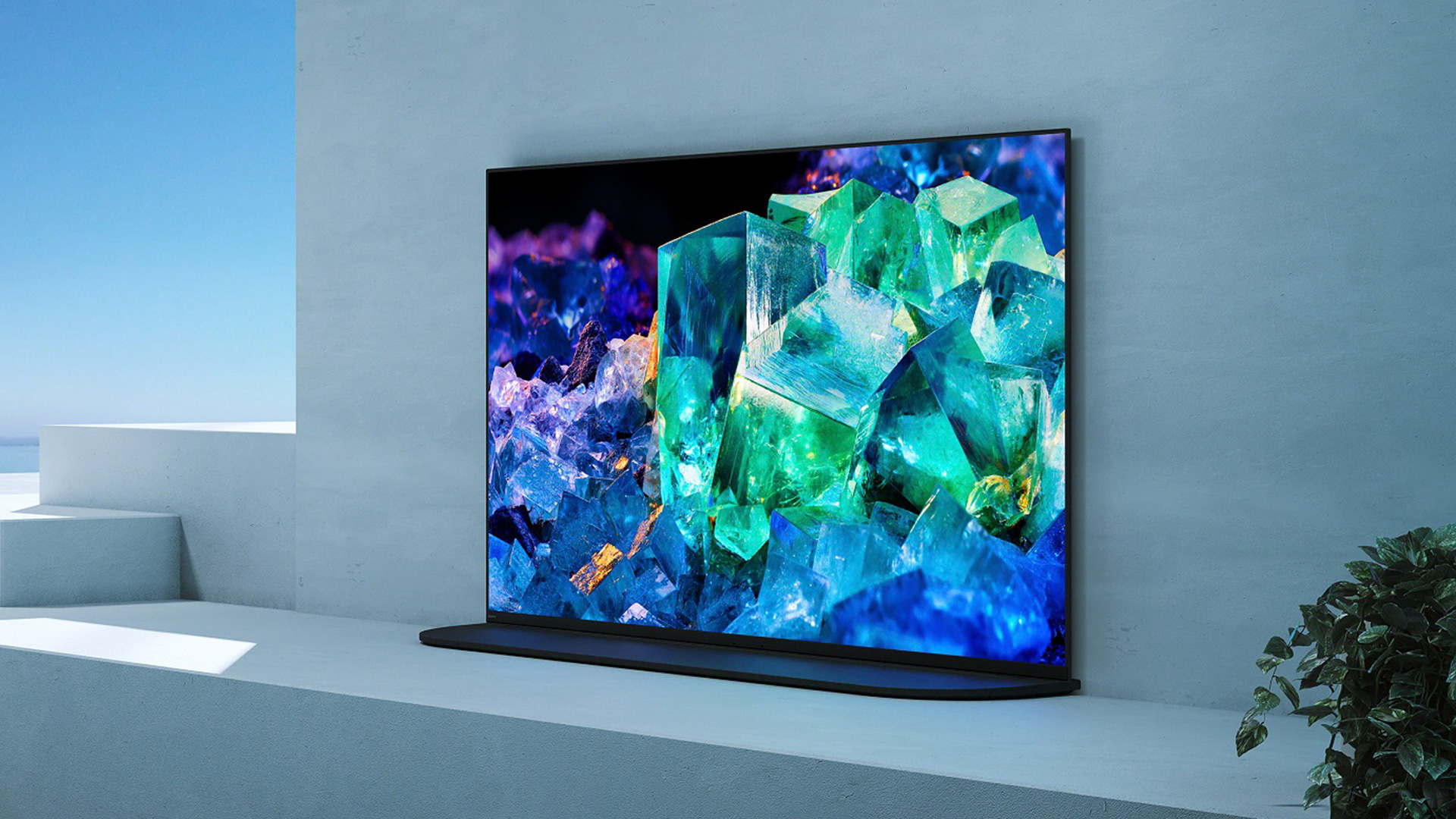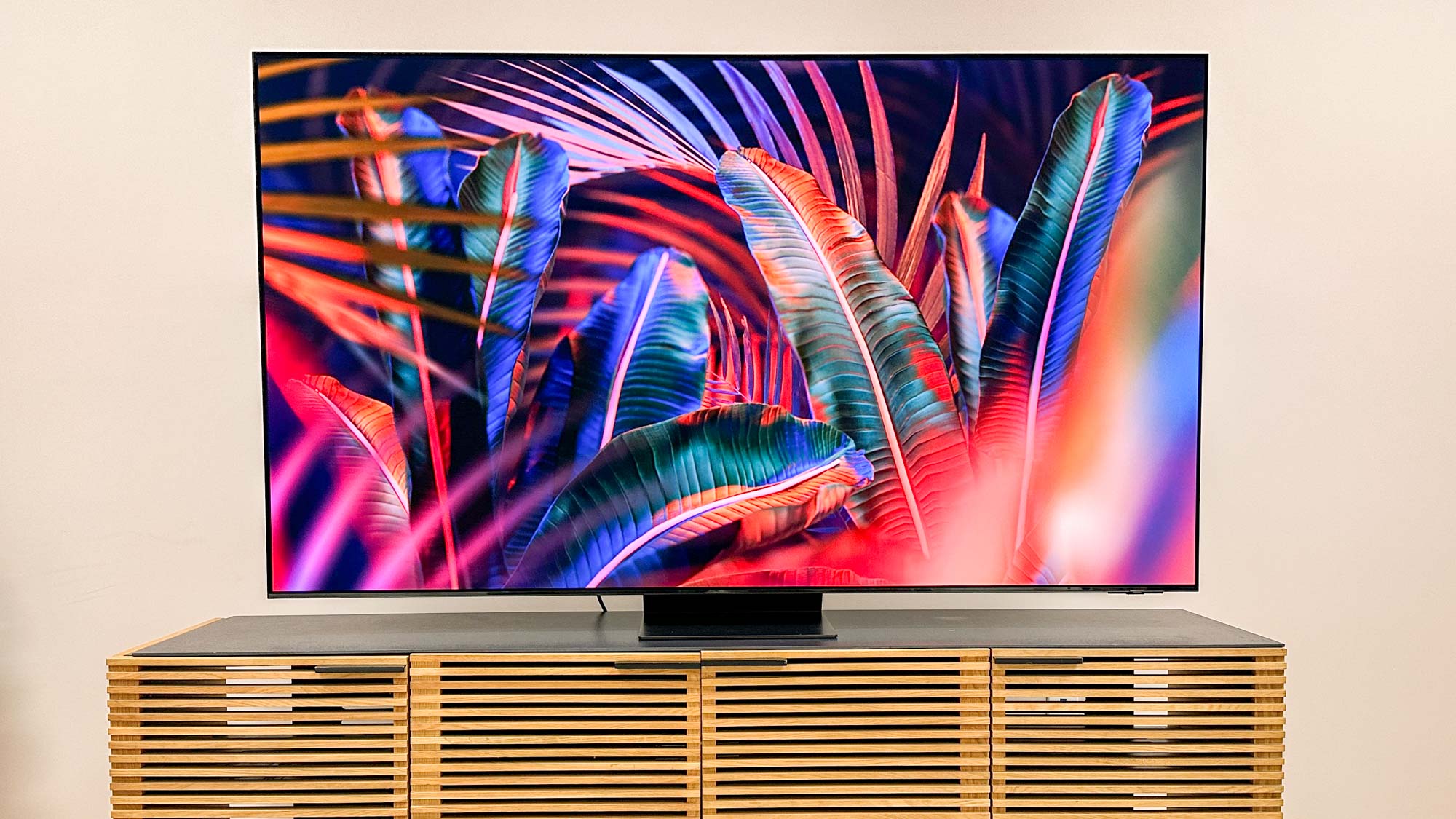LG vs Sony vs Samsung: Who makes the best OLED TV?
The top three OLED TV makers go head-to-head

When it comes to buying one of the best OLED TVs, there’s really just three brands to choose from: LG, Sony and Samsung. There are other brands with OLED offerings — the Vizio OLED TV, which came out in 2020, was even great value — but at this point, your best options are always going to be an LG, Sony or Samsung OLED TV.
However, once you settle on those three brands, it can be really difficult to chose. Each manufacturer has their own things they do really well, and other things where their OLED TVs fall short. Further complicating things, LG Display and Samsung Display both make OLED displays for Sony and Samsung OLED TVs — only LG makes 100% of its own OLED display panels.
So which one should you buy? Let’s break down all three brands and then see if there’s a clear OLED TV brand that makes the best OLED TV.
LG TVs: WOLED wonders

LG may be the easiest of the three OLED TV manufacturers to break down. First, it sources all of its OLED display panels through its LG Display sibling corporation, so all of its offerings use the same display technology — WOLED.
WOLED, or white OLED, refers to the white subpixel that LG uses in its OLED displays. In traditional OLED displays, there are only three subpixels: red, green and blue. Because LG adds in the fourth white subpixel, LG claims that its displays are superior when it comes to burn-in.
However, as we found in the LG C3 OLED, which is LG’s mid-range OLED TV, that WOLED display tech can occasionally have drawbacks. Namely, they fall short of the offerings from Sony and Samsung when it comes to brightness and color accuracy.
But while the LG displays occasionally fall short of the competition in technical testing, they excel in value. The LG C3 OLED TV is $600 less than the list price of our top picks from Sony and Samsung, and comes with an easy to use smart interface and loaded with features. Plus, the picture quality is still excellent.
Sign up to get the BEST of Tom's Guide direct to your inbox.
Get instant access to breaking news, the hottest reviews, great deals and helpful tips.
And if you want to upgrade your brightness you can get the LG G3 OLED for the same price as the Sony and Samsung flagship OLED TVs. The only catch with that one is that you have to wall mount it with a proprietary wall mount (there’s no stand either) and in terms of value it doesn’t quite give you as much as the C-series OLED TVs.
Sony TVs: Currently makes the ultimate OLED TV

Despite being the only one of these three brands not to make its own display panels, Sony has somehow managed to make a better OLED TV than either LG or Samsung.
That’s right, the best OLED TV we’ve ever tested isn’t made by either LG or Samsung — it’s the Sony Bravia XR A95K OLED TV. The Sony A95K OLED TV has incredible brightness thanks to its QD-OLED display that’s manufactured by Samsung Display. Unlike the LG WOLED display panels, these are traditional RGB OLED panels that feature just red, green and blue subpixels.
But that choice has its benefits. First, the Samsung QD-OLED displays are typically brighter than the LG competitors, and the Sony Bravia XR A95K OLED TV is one of the brightest OLED TVs we’ve ever seen. Plus, the “QD” in QD-OLED stands for Quantum Dot, which is the filter that Samsung overlays on its OLED displays for superior color accuracy at all angles. And on the Sony flagship, the Samsung Display QD-OLED panels benefits truly shine.
Unfortunately, Sony’s lower-tier models don’t excel quite so much. The Sony Bravia XR A80L OLED TV is a great mid-tier option, but it doesn’t get the QD-OLED treatment that the A95K gets. In fact, it uses an LG Display WOLED panel, and while those are still good display panels, the Sony version of the LG Display WOLED panel falls short the display panel on the LG C3 OLED in our technical testing. So while Sony makes the ultimate OLED TV, it’s not unequivocally the ultimate OLED TV maker.
Samsung TVs: Excellent TVs, but a murky future

So, if Samsung makes QD-OLED displays, and (burn-in concerns aside) we find those superior in our technical testing, Samsung has to be the best TV maker. Right?
Wrong.
Yes, the Samsung OLED TVs are great. We even rate the Samsung S95C OLED TV higher than the LG C3 OLED, giving it five stars thanks to its impressive gaming features and stunning brightness. And of course, it reaps the benefits of QD-OLED displays in terms of color accuracy.
But outside of this flagship TV, things are getting complicated for Samsung. While its QD-OLED TVs are excellent, its going to start outsourcing some of its display production to — you guessed it — LG Display. These will, of course, be WOLED display panels and as we’ve seen with Sony WOLED TVs, I don’t expect that Samsung’s mid-range OLED TVs will surpass the LG mid-range offerings as long as they are using LG Display OLED panels.
Even worse, Samsung’s flagship S95C QD-OLED TV has come under fire recently. Samsung and Best Buy are facing a class action lawsuit that accuses both companies of misrepresenting the feature set of Samsung’s TVs, including the Samsung S95C OLED. Specifically, the misrepresented the Motion Xcelerator Turbo+, FreeSync and/or HDMI 2.1 features of the Samsung TVs.
And unfortunately, some outside testing has potentially given credence to these claims. A prominent TV reviewer, Vincent Teoh of HDTV Test, called out Samsung for misrepresenting some features on the Samsung S95C OLED TV. Specifically, the OneConnect Box is limited to a 40Gbps speed, and therefore can’t actually handle 4K/144Hz gaming, which requires speeds of up to 48Gbps. Samsung argues that with the use of Display Stream Compression, the S95C can handle 4K resolution at a 144Hz refresh rate.
These allegations might paint a pretty damning picture, but put them aside for a minute and it's easy to be impressed with the S95C OLED. In our tests, the Samsung S95C was able to hit 626.3041 nits in SDR and 1369.364103 nits in HDR, making it one of the brightest OLED TVs we've yet to see. Tack on some great gaming features, its One Connect Box for cable management and its smart home connectivity, and you'll see that the S95C OLED is an all-rounder.
Verdict: Two clear winners and one that misses the mark
After hashing it all out, there are two clear winners and one runner-up.
If you want great value, the mid-tier LG C3 OLED TV is probably the best choice. It’s picture quality and brightness don’t quite match the Sony or Samsung QD-OLED TVs, but it’s still excellent despite being hundreds of dollars cheaper. And if you can still get last year’s LG C2 OLED TV, you can get a great OLED for even less. It’s still one of the best TVs we’ve ever reviewed.
But if you need the ultimate OLED TV, just get the Sony Bravia XR A95K OLED TV. What Sony has done by combining the Samsung QD-OLED panel with its own first-party features and Google TV smart TV platform make the best OLED TV you can buy right now. But if you don’t feel like spending up for the A95K, opt for an LG instead.
Unfortunately, that leaves us with Samsung. It’s important to note here that Samsung does make an excellent OLED TV. I’m not saying it doesn’t. But it’s flagship S95C OLED TV falls just short of the Sony A95K and isn’t as good value as the LG C-series OLED TVs. Add in the looming legal issues and its tough to recommend a Samsung OLED TV over a high-end Sony OLED TV or a mid-tier LG OLED TV.
We recommend continuing to read more about the Samsung S95C — and the new lower-priced Samsung S90C OLED — before making a buying decision, but if you want our two cents, the LG and Sony offer great performance without any caveats.
More from Tom's Guide

Malcolm has been with Tom's Guide since 2022, and has been covering the latest in streaming shows and movies since 2023. He's not one to shy away from a hot take, including that "John Wick" is one of the four greatest films ever made.
-
lking65 Reply
it is certainly true that LG produces a great OLED - unfortunately, the great picture is supported by the most abysmal customer service in the known universe-- so, getting and keeping the incredible picture is dumped on the user - LG could not care less - they already have your $$$. IMHOadmin said:We pit LG vs Sony vs Samsung to see which TV manufacturer makes the best OLED TV. Read on to see who wins.
LG vs Sony vs Samsung: Who makes the best OLED TV? : Read more -
njbiro It’s not just LG’s customer service . The company has some of the most buggy and intrusive software in its TVs. Way too much data mining going on. Enough that I gave my C2 away and bought a Sony A90K. Less buggy and, as much as I hate Google, the OS allowed my to turn off most tracking without creating operational issues. At the end of the day, most of us would be better served by turning the “Smart TV” section off and stream through an Apple TV.Reply
